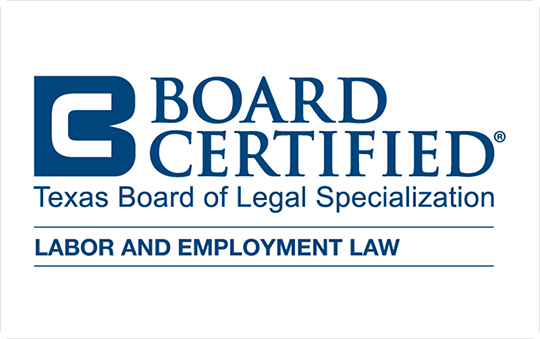What is a fundamental estate plan for you and your family? What documents are essential? The essential documents for fundamental estate planning in Texas are wills and advance directives—such as, Directive to Physicians and Family or Surrogate, Medical Power of Attorney—Designation of Health Care Agent, HIPAA Release and Authorization, and Statutory Durable Power of Attorney. Usually, these documents are all that are needed for most Texans’ estates.
This fundamental plan addresses goals such as supporting your family and distributing your assets upon your death. These are the goals for most families. A fundamental plan does not address death tax saving, probate avoidance, creditor protection, or fee savings. Should you have considerable assets or an estate with a value greater than $11 million, you should consider a more elaborate plan incorporating trusts and other tools in addition to wills and advance directives.
Last Will and Testament
A properly drafted and executed will distributes your property upon your death. What property is governed by the distribution statements in your will?
- Life Insurance? No. Life insurance benefits are distributed according to the terms in the policy.
- Retirement Plans? No. These benefits are paid according to your beneficiary designation made through the plan.
- Stocks? No. Mutual Funds? No. Other property held as joint tenants with right of survivorship (Bank Accounts)? No. Properly designated property automatically passes to the other joint tenant(s) upon your death.
- So, what exactly is governed by a will? Everything else. All your stuff—personal property and real estate—lacking beneficiary designations or properly designated survivorship rights.
What else is addressed in a will? You should name an executor in your will as well as alternate executors. The executor is someone you trust. The executor gathers your assets and pays your debts. Lastly, the executor distributes your property as directed in your will. You should state in your will that you expect “independent” estate administration and your executor is not required to get a bond. In situations involving young children, you may need a trust, trustee designations, and guardian candidates.
Advance Directives
Advance directives allow you to make important decisions regarding your medical treatment and financial decisions before there’s a need. You can designate your agents before there’s a problem.
Your plan should include at least 3 medical directives and 1 financial directive. The 3 medical directives are:
- DIRECTIVE TO PHYSICIANS AND FAMILY OR SURROGATES: This is your statement regarding your end of life decisions when suffering from a terminal or irreversible condition. This document takes the burden of such decisions off your family.
- MEDICAL POWER OF ATTORNEY—DESIGNATION OF HEALTH CARE AGENT: This document serves to appoint trusted family members, friends, or advisors as your agents to make critical medical decisions when you’re unable. You make your agents aware of your wishes regarding medical treatment.
- HIPAA RELEASE AND AUTHORIZATION: This designates to whom your medical providers may disclose your medical information. This document should name the agents designated in your Medical Power of Attorney.
The financial directive is:
- STATUTORY DURABLE POWER OF ATTORNEY: A properly executed durable power designates someone you trust to act on your behalf regarding financial matters. This is a very powerful document requiring your careful and thoughtful consideration when designating agents.
Conclusion
A Texas family with wills and the necessary advanced directives has taken the necessary steps for a strong estate plan.










